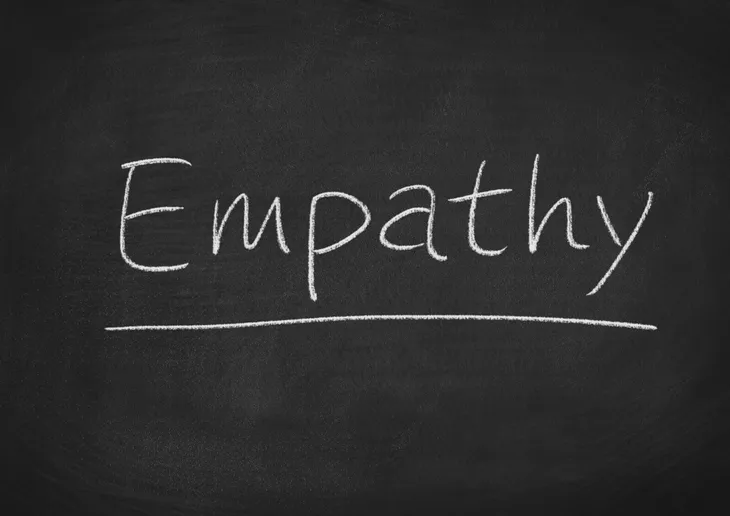MedlinePlus defines antisocial personality disorder—often referred to as sociopathy or psychopathy in popular culture—as “a mental condition in which a person has a long-term pattern of manipulating, exploiting, or violating the rights of others.”
It may be challenging to immediately identify this disorder in someone; however, as these individuals are capable of masking their hurtful behaviors with wit and charm in social situations and personal relationships. With that in mind, the following are the 10 most common indicators of the condition to be aware of.
1. Manipulating Other People’s Emotions
In addition to being witty and charming individuals, those with antisocial personality disorder may shower others in flattery. This is done intentionally to manipulate others’ emotions for personal gain or pleasure, another symptom of the condition.
As a result of these behaviors, people with antisocial personality disorder may struggle to maintain long-term relationships—both platonic and romantic—as people slowly become aware of or are hurt by the person’s exploitation.
2. Repeatedly Breaking the Law
People with antisocial personality disorder struggle to conform to, and sometimes entirely disregard, social norms and societal laws. As such, they will often engage in activities that are grounds for arrest. This includes things such as stealing and fighting.
Frequent fighting is also an indication of the person’s issues with anger and aggressiveness, which can be easily triggered. In these situations, they will not care about the safety of themselves or others involved and will have no reservations about violating another’s physical rights.
3. Showing No Remorse
Should a person with antisocial personality disorder hurt someone, whether emotionally or physically, they will show no signs of remorse for their behavior. In some cases, they may even try to rationalize what they did.
People with antisocial personality disorder also fail to learn from these experiences and the consequences that result, even if they lead to legal trouble, which is why these individuals engage in such activities repeatedly throughout their lives.
4. Repeatedly Lying
People with antisocial personality disorder are often very deceitful. Psych Central says this is indicated by “repeated lying, use of aliases, or conning others for personal profit or pleasure.”
In such scenarios is when they tend to turn on their charm and wit, in order to mask their manipulative behavior from the people they are trying to exploit. They may also display arrogance, thinking that they will never be caught or exposed.
5. Acting Irresponsibly
As a result of their irresponsible behaviors—such as persistent lying and manipulation and disrespect for others—people with antisocial personality disorder often struggle to fulfill work obligations. This may mean they change jobs frequently and lack stability in their finances.
Rather than taking responsibility for their actions and problems they create, those with the condition will often try to pass the blame onto others.
6. Struggling with Substance Abuse
As mentioned earlier, people with antisocial personality disorder have no regard for their own safety, which is why they often engage in unnecessary risk-taking or dangerous behaviors, such as using and abusing alcohol and drugs.
Psychology Today says that such issues can further exacerbate symptoms of the disorder, adding that “when substance abuse and antisocial personality disorder coexist, treatment is more complicated for both.”
7. Displaying Arrogance
We’ve all encountered someone who is arrogant. But in people with antisocial personality disorder, the behavior can display itself in many different ways. We previously mentioned how, when deceiving or lying to others, these individuals think they won’t be caught or exposed.
They can also exhibit their arrogance through behaviors, such as being cocky, self-assured, and extremely opinionated. Psych Central adds that they may “feel that ordinary work is beneath them or a lack of realistic concern about their current problems or their future.”
8. Lacking Empathy
Earlier, we discussed how individuals with antisocial personality disorder often manipulate others for their own personal gain. The reason they are able to do this with such ease is because they lack empathy, which is the ability to figuratively step into another person’s shoes and understand their feelings.
The feelings of others do not factor into the decisions or actions of a person with antisocial personality disorder. As a result, they often end up causing others a great deal of hurt. But because they cannot understand why a person would be hurt by their actions, they don’t feel bad (remorse) for what they’ve done and will therefore likely repeat the behavior again in the future.
9. Acting Impulsively
Individuals with antisocial personality disorder do not have the same ability to control their impulses that most others do. When the average person thinks about doing something that would result in immediate satisfaction, like, say, stealing a car, they are able to restrain the urge.
But when people with antisocial personality disorder have the same thought, they are much less likely to hold back because they like the thrill of immediate satisfaction and also because their arrogance makes them think that societal laws against doing illegal things (e.g., stealing cars) simply don’t apply to them.
10. Fail to Plan Ahead
Along with acting impulsively, people with antisocial personality disorder fail to plan ahead. This doesn’t mean they’re unable to develop a schedule or set goals (although it’s possible they may not), but rather, they do not consider the potential consequences of their actions in advance.
These negative consequences are usually what deter the average person from engaging in hurtful or illegal behaviors, but not thinking about them is what allows people with the disorder to act impulsively. And even if these consequences come to pass, they don’t learn from their actions and will likely engage in them again, often repeatedly throughout their life.













